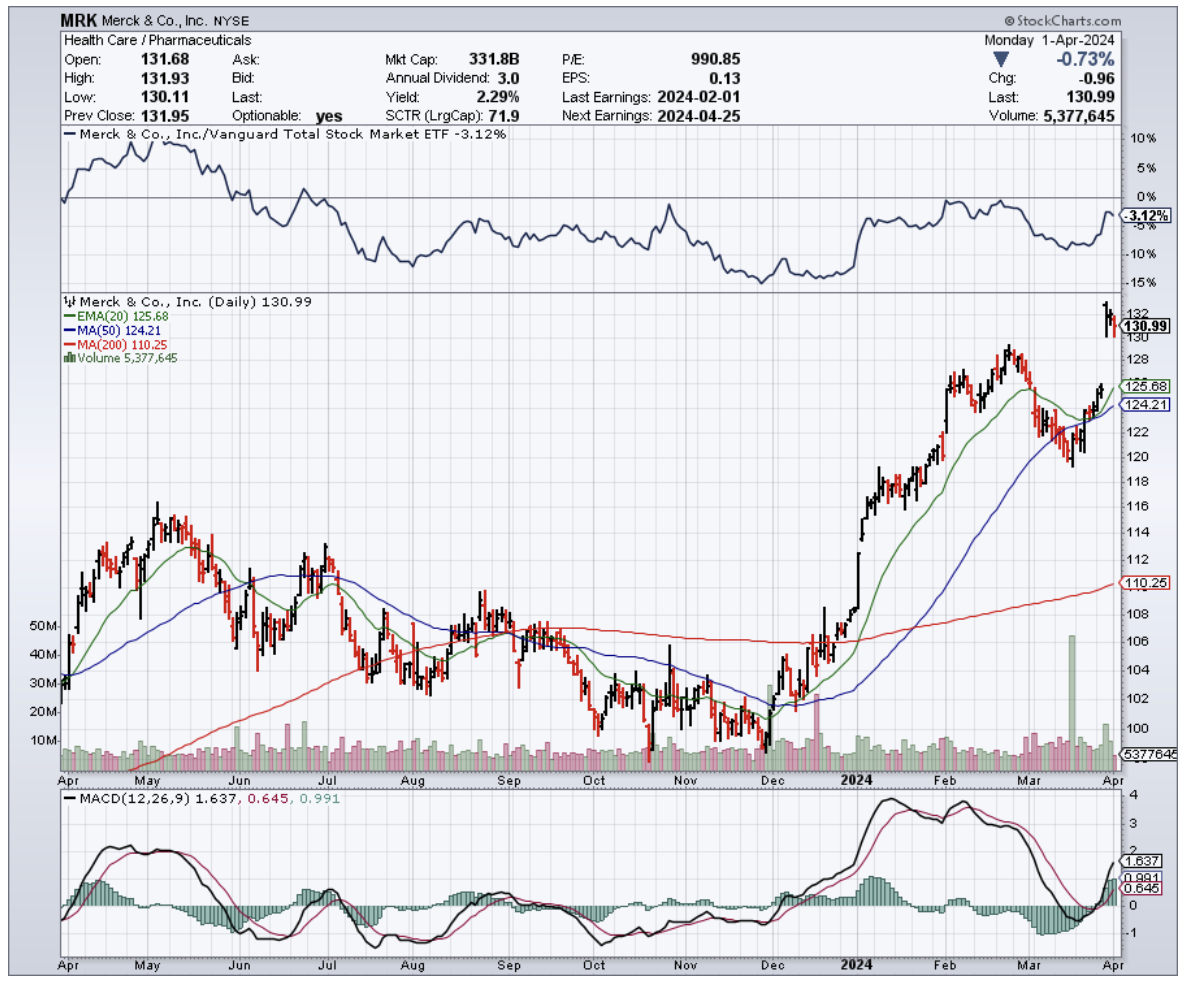Breathe Easy
It looks like Merck (MRK) just scored a major touchdown in the drug wars, which might make the looming Keytruda patent expiration sting a little less.
Remember when Merck dropped $11.5 billion on Acceleron back in 2021 to get their hands on Winrevair (then known as Sotatercept)? That was a seriously gutsy move to soften the blow when their Keytruda goldmine started drying up.
Talk about a gamble. Acceleron didn't even have their Phase 3 trial results in hand yet. A lot of people were scratching their heads at the time, thinking maybe Merck had lost their marbles.
But fast-forward to today, those Phase 3 results drop, and here we are. Turns out Merck knows a thing or two about playing the long game.
Their new drug, Winrevair, which just got the FDA thumbs up for a rare heart condition, tackles a serious heart condition called pulmonary arterial hypertension (PAH).
PAH is no joke – it basically strangles your lungs and heart, drastically shortening your lifespan. Unlike those old PAH drugs like Uptravi from Johnson & Johnson (JNJ), Winrevair's got a completely different way of fighting back. That could be huge for patients who aren't getting enough relief with current options.
Winrevair targets that messed-up TGF-beta pathway, trying to reverse some of the damage caused by this disease.
Although PAH might be rare, affecting an estimated 15 to 50 people per million in the United States and Europe, those who suffer from it are often desperate for effective treatments.
The global PAH market is already worth a staggering $7.3 billion annually and is projected to hit $12.18 billion by 2032.
Merck's timing couldn't be better. Not only did Winrevair sail through approval, but it also dodged all those nasty black box warnings and extra safety hoops some drugs have to jump through.
Translation: this drug is about to hit the market full speed ahead.
Given the promise of this new drug, Merck must be popping champagne corks right about now. No restrictions mean doctors can prescribe this stuff far and wide – that's a probable goldmine, especially for a serious disease like PAH.
Let's not forget why all this matters. Keytruda was a $25 billion cash cow for Merck in 2023, making up a huge chunk of their revenue. Those cheap knock-offs are coming in 2028, ready to eat into that sweet slice of the pie.
But thanks to Wenrevair, that future doesn’t seem too daunting anymore.
Merck has set a price of $14,000 per vial for Winrevair, translating to an average annual cost of $212,000 per patient. While this may seem steep, it reflects the drug's potential to improve the lives of PAH sufferers and secure Merck's financial future.
Actually, analysts are predicting peak sales of a mind-boggling $11 billion – maybe even $8 billion at the low end. Either way, that's a massive lifeline for Merck as they brace for the dreaded Keytruda patent cliff in 2028.
In fact, Winrevair could pull in $500 million this year alone, jumping to $3 billion by 2027. Talk about a growth spurt.
With Winrevair set to change the PAH treatment landscape, investors can breathe easy knowing that Merck has a new ace up its sleeve.
After all, this drug is practically guaranteed to be another blockbuster, which is great news considering the looming Keytruda patent expiration in 2028.
Merck's audacious $11 billion bet on Acceleron seems to be paying off – Winrevair could easily bring in $30 billion over its lifespan.
But let's not get too carried away – Winrevair won't single-handedly save Merck in the long run. They'll need more hits to keep outperforming the competition.
For now, Merck seems like a decent hold. It's got reasonable growth potential, and you might even want to nab some shares if the price dips.


